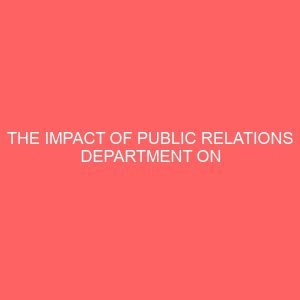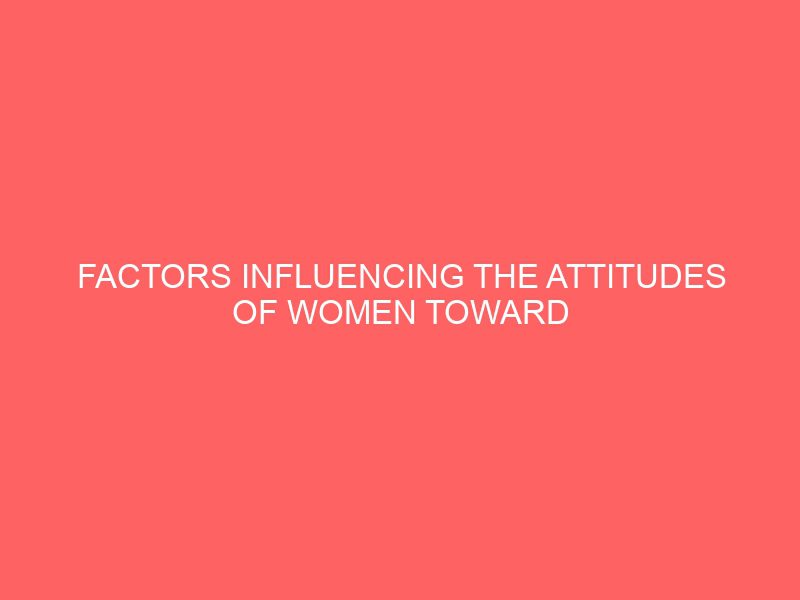Description
Abstract
This project looks at Factors influencing the attitudes of women toward family planning in Rivers state. Family planning is an important preventive measure against maternal and child morbidity and mortality. It is an essential component of primary health care and reproductive health. There is a relatively high fertility rate in suburban and rural Nigeria despite the efforts of government and other non-governmental family planning services providers. Even though the fertility rate is high, acceptance and utilization of modern family planning methods have been low due to various reasons. This study investigated the factors influencing the attitude of women toward family planning in Elele community of Rivers state. In order to achieve the research objectives, specific purpose of the study was identified which enhanced the formulation of five research questions and five hypotheses respectively. There was a review of literature based on the purpose of the study and the hypotheses. The population comprised of all childbearing age women in Elele community 280 sample size was used in the project while Pearson’s product-moment correlation coefficient was adopted for the test-retest. A structured questionnaire was used in collecting relevant data for the study. Three hypotheses were tested and the result showed that: Socio-economic status influences the attitude of women of childbearing age toward family planning and the educational status of women of childbearing age influence the attitude of women toward family planning.








Reviews
There are no reviews yet.